
The Serene Charm of Trimbak Road: A Gateway to Nashik's Spiritual and Natural Wonders
Trimbak Road in Nashik is a captivating blend of spiritual significance and natural beauty. As you journey along this scenic route, you'll discover an array of temples and shrines that reflect the deep religious roots of the area. The road leads to the famous Trimbakeshwar Temple, one of the twelve Jyotirlingas, which draws pilgrims from all over India. The spiritual aura is palpable, offering a serene and reflective atmosphere that invites introspection and peace. Beyond its religious allure, Trimbak Road is a gateway to some of Nashik's most stunning landscapes. The lush greenery and rolling hills provide a picturesque backdrop for outdoor enthusiasts. The nearby Anjaneri Hills, believed to be the birthplace of Lord Hanuman, offer trekking opportunities with breathtaking views. The area is also dotted with vineyards, making it a great spot for wine lovers to explore Nashik's burgeoning wine industry. Trimbak Road is not just about spirituality and nature; it also offers a taste of local culture. The vibrant markets and street food stalls offer a culinary journey through Nashik's traditional flavors. From spicy misal pav to delectable sweets, the local cuisine is a treat for the senses. The warmth and hospitality of the local people add to the charm, making every visitor feel welcome and at home.
Local tips in Trimbak Road
- Visit Trimbakeshwar Temple early in the morning to avoid long queues and enjoy a peaceful experience.
- Carry comfortable trekking shoes if you plan to explore Anjaneri Hills.
- Don't miss out on trying the local street food, especially the spicy misal pav.
- Plan a visit to nearby vineyards for a unique wine-tasting experience.
- Respect local customs and traditions, especially when visiting religious sites.
The Serene Charm of Trimbak Road: A Gateway to Nashik's Spiritual and Natural Wonders
Trimbak Road in Nashik is a captivating blend of spiritual significance and natural beauty. As you journey along this scenic route, you'll discover an array of temples and shrines that reflect the deep religious roots of the area. The road leads to the famous Trimbakeshwar Temple, one of the twelve Jyotirlingas, which draws pilgrims from all over India. The spiritual aura is palpable, offering a serene and reflective atmosphere that invites introspection and peace. Beyond its religious allure, Trimbak Road is a gateway to some of Nashik's most stunning landscapes. The lush greenery and rolling hills provide a picturesque backdrop for outdoor enthusiasts. The nearby Anjaneri Hills, believed to be the birthplace of Lord Hanuman, offer trekking opportunities with breathtaking views. The area is also dotted with vineyards, making it a great spot for wine lovers to explore Nashik's burgeoning wine industry. Trimbak Road is not just about spirituality and nature; it also offers a taste of local culture. The vibrant markets and street food stalls offer a culinary journey through Nashik's traditional flavors. From spicy misal pav to delectable sweets, the local cuisine is a treat for the senses. The warmth and hospitality of the local people add to the charm, making every visitor feel welcome and at home.
Iconic landmarks you can’t miss
Shri Trimbakeshwar Jyotirling Mandir, Nashik
Explore the divine beauty of Shri Trimbakeshwar Jyotirling Mandir, an iconic Hindu temple in Nashik, Maharashtra, rich in history and spiritual significance.
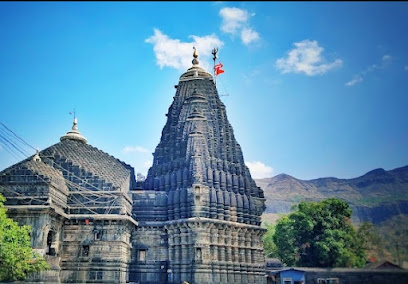
Buddha Leni Caves
Discover the ancient Buddha Leni Caves in Nashik, where history, art, and nature converge in a breathtaking landscape.
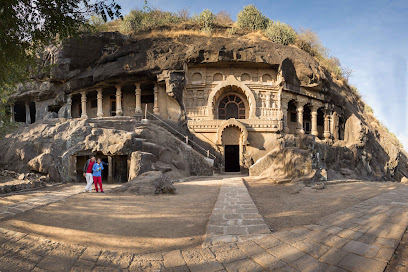
Someshwar Water Fall
Experience the enchanting beauty of Someshwar Water Fall in Nashik, a serene haven for nature lovers and adventure enthusiasts alike.
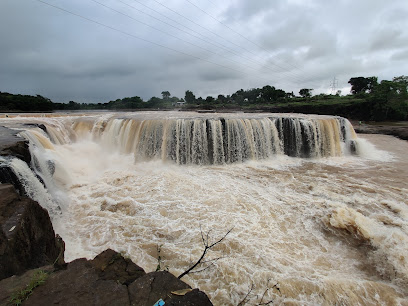
Chambar Leni
Discover the exquisite Jain temple of Chambar Leni in Nashik, a serene blend of spirituality and nature perfect for every traveler.
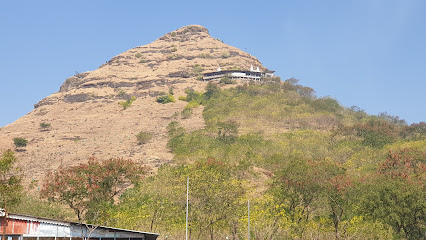
Floral Sojourn
Discover the enchanting beauty of Floral Sojourn in Nashik, where vibrant flowers bloom and tranquility reigns in a lush green paradise.
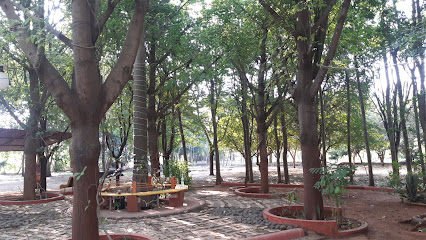
Shahid Smarak
Explore Shahid Smarak in Nashik, a serene monument dedicated to the valor of soldiers, offering history, tranquility, and breathtaking views.
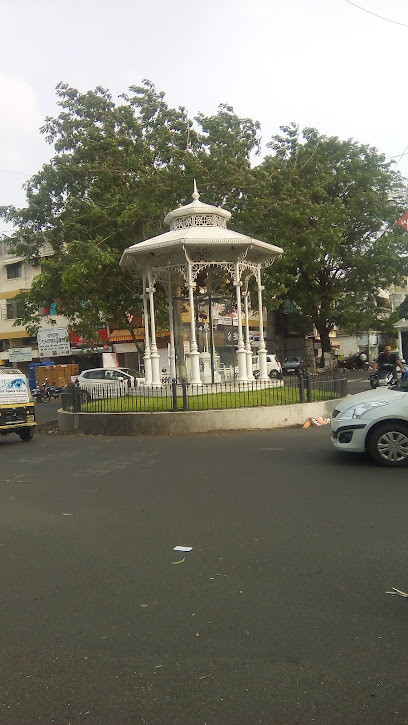
Ganga Ghat
Explore Ganga Ghat in Nashik: A sacred destination where spirituality meets stunning natural beauty, perfect for reflection and cultural immersion.
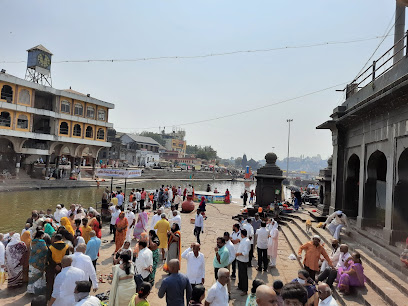
Nashik Maharashtra
Explore Nashik, Maharashtra: A perfect blend of spirituality, nature, and adventure awaits in this cultural haven.
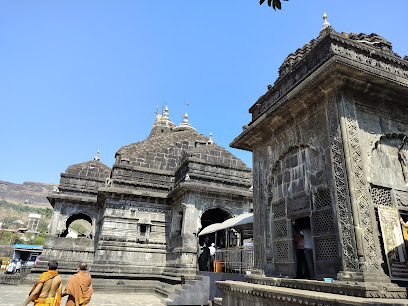
Vitthal Bagh विठ्ठल बाग
Experience the serene beauty of Vitthal Bagh in Nashik, a tranquil tourist attraction perfect for relaxation and nature walks.
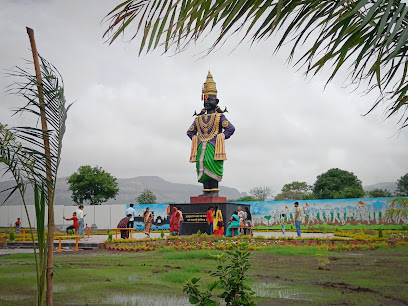
Enriching Nashik - tourist spot
Explore Nashik: The Wine Capital of India, blending spirituality, adventure, and rich cultural heritage in the heart of Maharashtra.
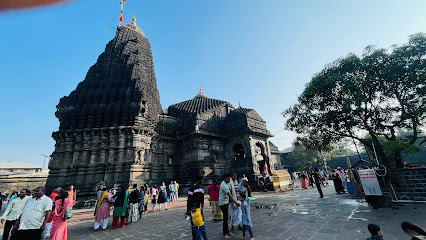
Nashik maharastra
Explore Nashik, Maharashtra: A Fusion of Spirituality, Wine, and Scenic Beauty for Every Traveler.
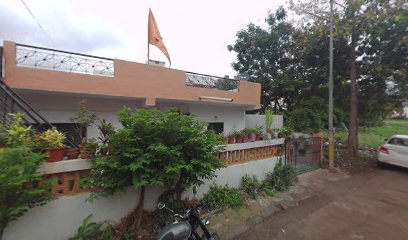
Unmissable attractions to see
Someshwar Water Fall
Experience the natural beauty and serene ambiance of Someshwar Water Fall, a breathtaking escape in the heart of Nashik, Maharashtra.
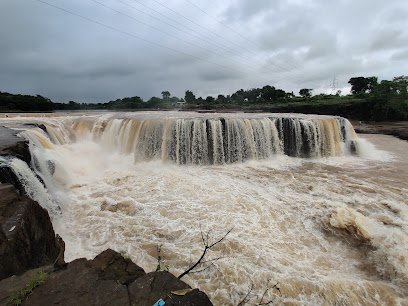
Naroshankar Temple
Experience spirituality and stunning architecture at Naroshankar Temple, a must-visit destination in Nashik, Maharashtra, rich in history and beauty.
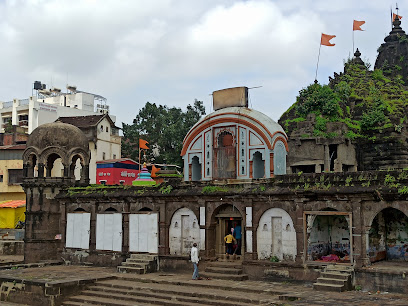
Mahiravani Waterfall
Discover the breathtaking beauty of Mahiravani Waterfall in Nashik, Maharashtra, a serene escape into nature's ultimate paradise.

Amrut garden nagar
Discover the tranquil beauty of Amrut Garden Nagar, a lush escape in Nashik, perfect for relaxation, picnics, and experiencing local culture.
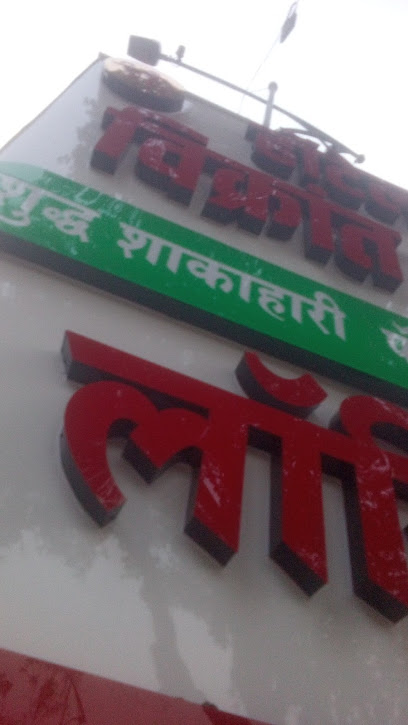
Shree Tantrapith Paradeshwar Dham
Explore the serene Shree Tantrapith Paradeshwar Dham in Nashik, a Hindu temple that offers spiritual tranquility and cultural richness in Maharashtra.
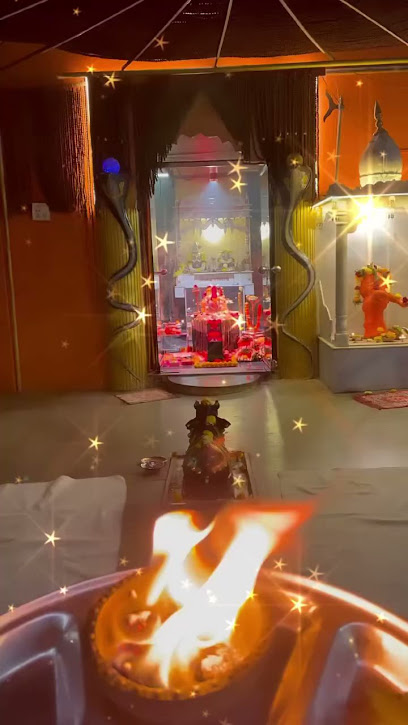
I Love Nashik Sign by Dham Fasteners
Discover the vibrant 'I Love Nashik' sign in Maharashtra, a perfect photo spot reflecting the city's charm and spirit.
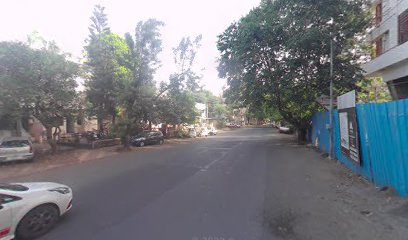
Essential places to dine
Hotel Sanskruti
Experience authentic Maharashtrian vegetarian cuisine at Hotel Sanskruti in Nashik, where every meal tells a story.

Sai - Rekha's Masalaz One
Experience the vibrant flavors of India at Sai - Rekha's Masalaz One, Nashik’s premier family-friendly dining destination.

Banjaara Family Restaurant & Resto Bar
Experience authentic Indian flavors at Banjaara Family Restaurant & Resto Bar in Nashik - where great food meets family-friendly vibes.
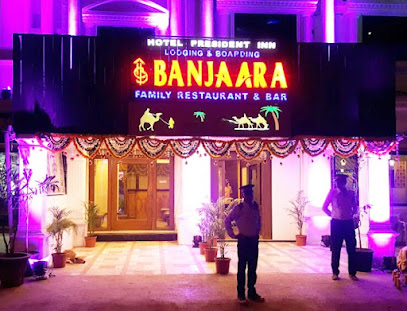
Govind Dine-In, Pure veg restaurant
Experience the rich flavors of India at Govind Dine-In, Nashik's top pure vegetarian restaurant offering delicious meals for every occasion.
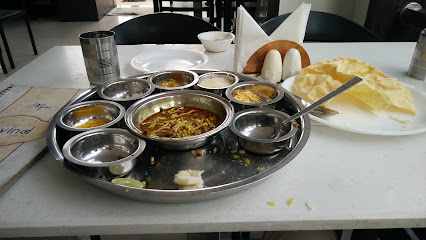
The Sidewalk at BLVD Nashik
Discover diverse flavors at The Sidewalk in Nashik – where every meal is a culinary adventure waiting to be savored.
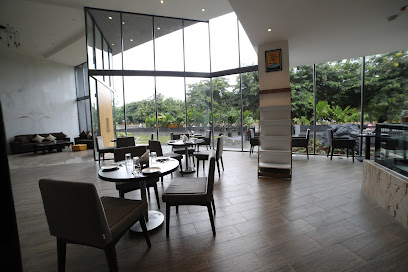
Hotel Mazda & Cafe - Best Cafe | Family Restaurants | Multicusion Restaurant in Nashik
Experience the rich culinary diversity at Hotel Mazda & Cafe in Nashik - where flavors meet hospitality.
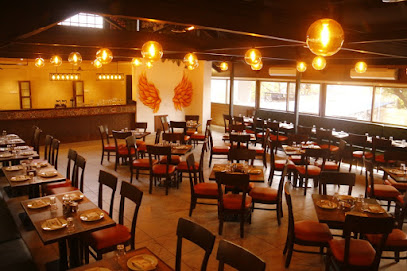
Jhatpatt Restaurant
Discover the flavors of India at Jhatpatt Restaurant in Nashik - a top destination for delicious vegetarian cuisine and family-friendly dining.

Tulja Restaurant and Bar
Discover exquisite flavors at Tulja Restaurant and Bar in Nashik - where local tastes meet global cuisine in a charming atmosphere.
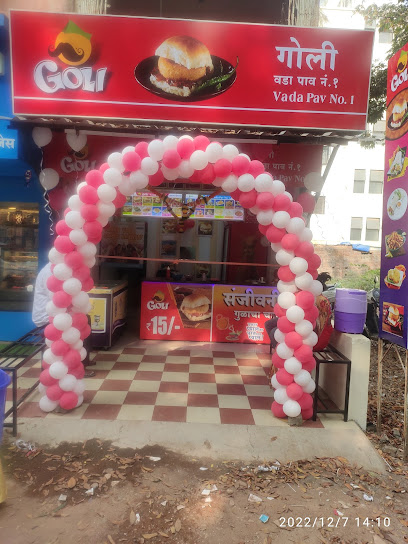
Zaika Restaurant
Discover the flavors of India at Zaika Restaurant in Nashik—where every meal is a celebration of culinary artistry.
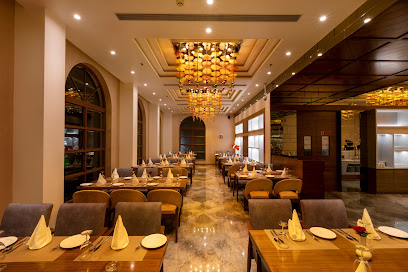
TRIMBAKRAJ SOUTH INDIAN FOOD
Experience the essence of South Indian flavors at Trimbakraj - a culinary delight in Nashik's vibrant food scene.

Markets, malls and hidden boutiques
Suyog Collection Satpur
Discover unique clothing styles at Suyog Collection in Nashik, where local fashion meets quality craftsmanship and vibrant culture.

Anish Kerala Stores
Explore the authentic flavors of Kerala at Anish Kerala Stores, a must-visit general store in Nashik, Maharashtra.
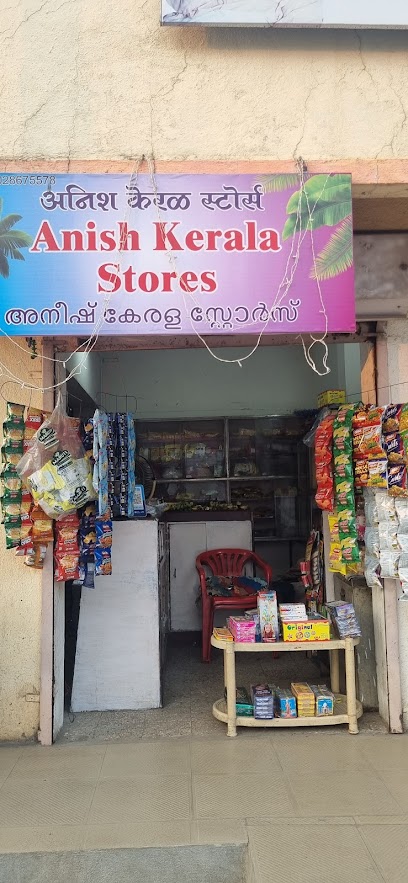
Sumit Gifts
Discover a unique array of gifts, cosmetics, and stationery at Sumit Gifts in Nashik, where every item tells a story.

Sanket Collection
Discover the finest men's fashion at Sanket Collection in Nashik, where style meets quality for every occasion.

Arihant Collections
Discover unique gifts and local craftsmanship at Arihant Collections in Nashik, offering jewelry, perfumes, and toys that reflect India's rich culture.

BIBA
Discover the essence of Indian fashion at BIBA in Nashik's City Center Mall, offering exquisite ethnic wear, accessories, and jewelry.
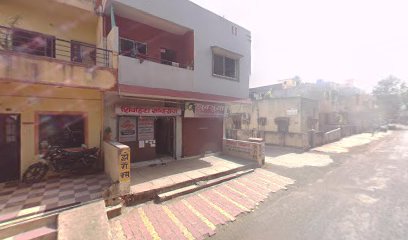
UNIQUE HUB BABY SHOP
Explore Unique Hub Baby Shop in Nashik - A delightful destination for quality baby products to suit every little one's needs.

Pornima Gift Collection
Discover unique handcrafted gifts and souvenirs at Pornima Gift Collection in Nashik, capturing the essence of Indian craftsmanship.

Unique Hub Garments
Explore Unique Hub Garments in Nashik, where fashion meets affordability and quality in a vibrant shopping experience.

Shri Dutt Krupa General Store
Explore the charm of Shri Dutt Krupa General Store in Nashik, where local culture meets convenience in a delightful shopping experience.

Essential bars & hidden hideouts
Banjaara Family Restaurant & Resto Bar
Experience the vibrant flavors of Nashik at Banjaara Family Restaurant & Resto Bar, where authentic Indian cuisine meets a warm family-friendly atmosphere.
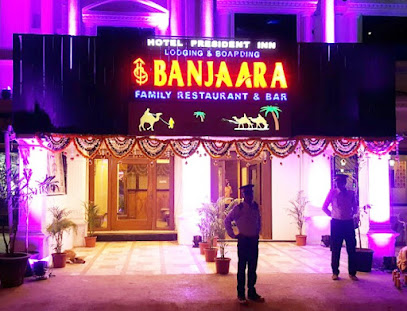
Red Chillys - Levels
Discover the flavors of India at Red Chillys - Levels, a family-friendly restaurant and bar in Nashik, perfect for every occasion.
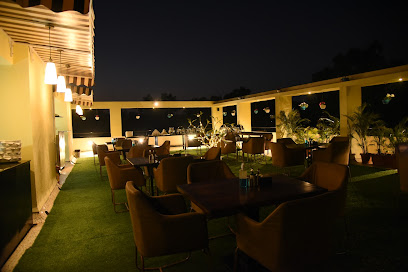
The Foundry
Experience the vibrant nightlife at The Foundry, Nashik's top bar and lounge, offering exquisite drinks and a lively atmosphere.
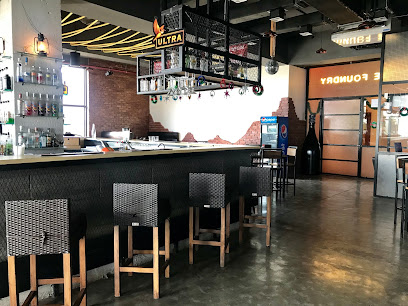
Hotel Mazda & Cafe - Best Cafe | Family Restaurants | Multicusion Restaurant in Nashik
Experience delightful dining at Hotel Mazda & Cafe in Nashik, where traditional Indian flavors meet Asian fusion in a cozy atmosphere.
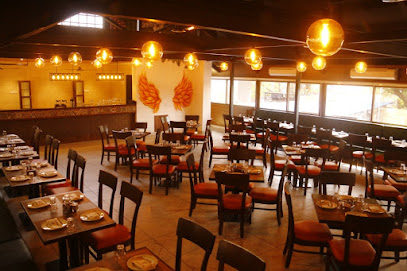
SHREE KUMARA BAR & RESTAURANT
Experience the vibrant flavors of India at Shree Kumara Bar & Restaurant, where culinary tradition meets a lively atmosphere in Nashik.
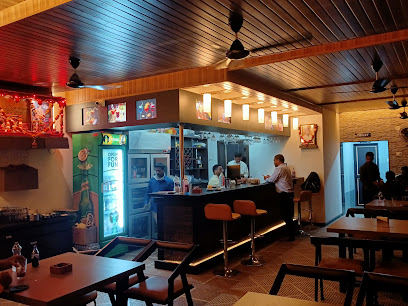
Roof top kitchen & bar Nashik
Experience the flavors of Nashik at Rooftop Kitchen & Bar, where panoramic views meet exquisite culinary delights in a vibrant atmosphere.
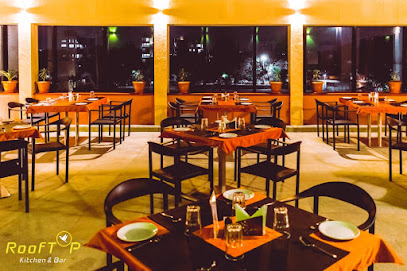
HOTEL STAR RESTAURANT & BAR
Discover the flavors of Nashik at Hotel Star Restaurant & Bar, where grilling meets a vibrant bar experience in a warm and inviting atmosphere.
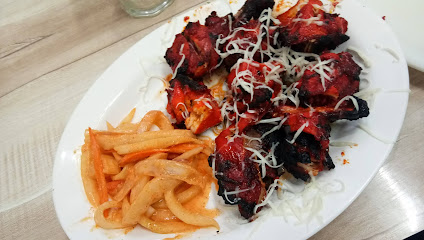
Ghungroo Bar
Ghungroo Bar: A lively Nashik hotspot for tourists seeking refreshing drinks and a vibrant atmosphere in Maharashtra.
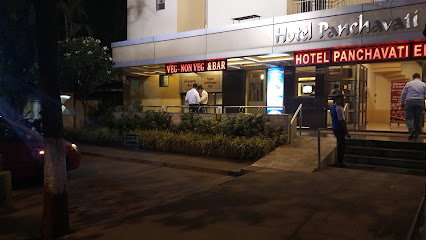
Topchi Taproom
Experience the vibrant atmosphere and culinary delights at Topchi Taproom, Nashik's premier brewpub for foodies and socialites.
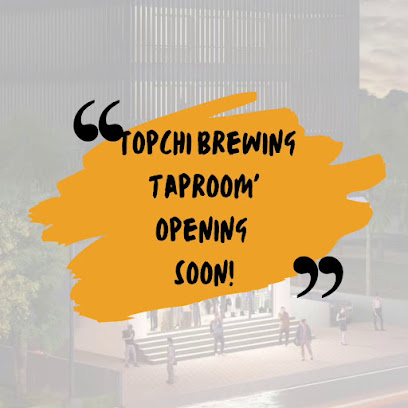
Last resort for daru
Explore Nashik's vibrant nightlife at Last Resort for Daru, a lively bar offering a diverse drink selection in a welcoming atmosphere.
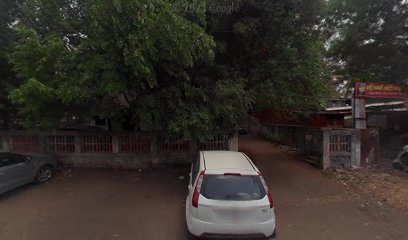
Local Phrases
-
- Helloनमस्कार
[Namaskar] - Goodbyeअलविदा
[Alvida] - Yesहाँ
[Haan] - Noनहीं
[Nahi] - Please/You're welcomeकृपया
[Kripya] - Thank youधन्यवाद
[Dhanyawad] - Excuse me/Sorryक्षमा कीजिये
[Kshama kijiye] - How are you?आप कैसे हैं?
[Aap kaise hain?] - Fine. And you?ठीक हूँ। और आप?
[Theek hoon. Aur aap?] - Do you speak English?क्या आप अंग्रेज़ी बोलते हैं?
[Kya aap angrezi bolte hain?] - I don't understandमुझे समझ नहीं आया
[Mujhe samajh nahi aaya]
- Helloनमस्कार
-
- I'd like to see the menu, pleaseकृपया मेनू देखना चाहूँ
[Kripya menu dekhna chahoon] - I don't eat meatमैं मांस नहीं खाता/खाती
[Main maans nahi khaata/khaati] - Cheers!चियर्स!
[Cheers!] - I would like to pay, pleaseकृपया मैं भुगतान करना चाहता/चाहती हूँ
[Kripya main bhugtan karna chahta/chahti hoon]
- I'd like to see the menu, pleaseकृपया मेनू देखना चाहूँ
-
- Help!बचाव!
[Bachav!] - Go away!चले जाओ!
[Chale jao!] - Call the Police!पुलिस को बुलाओ!
[Police ko bulao!] - Call a doctor!डॉक्टर को बुलाओ!
[Doctor ko bulao!] - I'm lostमैं खो गया/गई हूँ
[Main kho gaya/gayi hoon] - I'm illमुझे बीमारी है
[Mujhe bimari hai]
- Help!बचाव!
-
- I'd like to buy...मैं ... खरीदना चाहूँ
[Main ... khareedna chahoon] - I'm just lookingमैं बस देख रहा/रही हूँ
[Main bas dekh raha/rahi hoon] - How much is it?यह कितने का है?
[Yeh kitne ka hai?] - That's too expensiveयह बहुत महंगा है
[Yeh bahut mehnga hai] - Can you lower the price?क्या आप कीमत कम कर सकते हैं?
[Kya aap keemat kam kar sakte hain?]
- I'd like to buy...मैं ... खरीदना चाहूँ
-
- What time is it?अब कितने बजे हैं?
[Ab kitne baje hain?] - It's one o'clockएक बजे हैं
[Ek baje hain] - Half past (10)(10) बजकर पंद्रह मिनट हो गए
[(10) bajkar pandrah minute ho gaye] - Morningसुबह
[Subah] - Afternoonदोपहर
[Dopahar] - Eveningशाम
[Shaam] - Yesterdayकल
[Kal] - Todayआज
[Aaj] - Tomorrowकल
[Kal] - 1एक
[Ek] - 2दो
[Do] - 3तीन
[Teen] - 4चार
[Char] - 5पाँच
[Paanch] - 6छे
[Che] - 7सात
[Saath] - 8आठ
[Aath] - 9नौ
[Nau] - 10दस
[Das]
- What time is it?अब कितने बजे हैं?
-
- Where's a/the...?... कहाँ है?
[... kahan hai?] - What's the address?पता क्या है?
[Pata kya hai?] - Can you show me (on the map)?क्या आप मुझे दिखा सकते हैं (नक्शे पर)?
[Kya aap mujhe dikhha sakte hain (naksha par)?] - When's the next (bus)?अगली (बस) कब है?
[Agli (bus) kab hai?] - A ticket (to ....)एक टिकट (.... के लिए)
[Ek ticket (.... ke liye)]
- Where's a/the...?... कहाँ है?
History of Trimbak Road
-
Trimbak Road is closely associated with the ancient Hindu mythology surrounding the Godavari River and the sacred site of *Trimbak*, known for the *Trimbakeshwar Temple*. The temple, dedicated to Lord Shiva, is believed to have been established in the 18th century, although its origins trace back to much earlier times. The region is considered a Tirtha or pilgrimage site, drawing devotees who seek spiritual solace.
-
In the 18th century, during the reign of the Peshwas, Trimbak Road became a vital route for pilgrims traveling to the Trimbakeshwar Temple. The Peshwas invested in the area, enhancing its infrastructure and promoting cultural activities that included the construction of temples and ghats. This period marked a significant development in the architectural landscape of Nashik.
-
The British colonial period brought significant changes to Trimbak Road, as Nashik emerged as a key military outpost. The road was utilized for transporting troops and supplies, leading to the establishment of better connectivity and infrastructure. The era also saw the introduction of Western education and governance, influencing the cultural dynamics of the region.
-
After India's independence in 1947, Trimbak Road experienced rapid urbanization, reflecting the broader changes in Nashik. As the city expanded, the road became an important commercial and residential hub. The local economy diversified, with agriculture and tourism playing significant roles in its growth. The road continues to witness evolving cultural practices, blending traditional rituals with modern lifestyles.
-
Trimbak Road is not only a thoroughfare but also a vibrant cultural space where numerous festivals take place, such as *Kumbh Mela*, which occurs every 12 years, attracting millions of pilgrims. This festival showcases the rich cultural heritage of the area, with processions, rituals, and gatherings reflecting the communal spirit of the residents. The road serves as a backdrop for these events, reinforcing its significance within Nashik's cultural framework.
Trimbak Road Essentials
-
Trimbak Road is easily accessible from various neighborhoods in Nashik. If you're arriving from Nashik Road railway station, you can take a local bus (Nashik Municipal Transport) or hire a taxi, which takes about 30 minutes. From the city center, local shared auto-rickshaws are available, providing a budget-friendly option. For those coming from the Pune-Nashik Highway, private taxis or personal vehicles can reach Trimbak Road in approximately 1.5 hours.
-
Trimbak Road is well-connected by public transport. Local buses operate frequently along the main routes, and auto-rickshaws are a convenient way to navigate shorter distances. Bicycles can also be rented from local shops, providing a unique way to explore the area. For longer distances, taxis are readily available, and app-based ride services like Ola or Uber can be used.
-
Trimbak Road is generally safe for tourists, but it is advisable to remain vigilant, especially in crowded areas. Avoid walking alone at night, particularly in poorly lit sections. While there are no specific high-crime areas targeting tourists, petty theft and pickpocketing can occur. Always keep your belongings secure and be cautious when interacting with strangers.
-
In case of an emergency, dial 100 for police assistance or 108 for ambulance services. Local hospitals like Suyog Hospital and Nashik Civil Hospital are equipped for medical emergencies. Always carry a copy of your identification and any necessary travel insurance information. For minor health issues, local pharmacies are available for over-the-counter medications.
-
Fashion: Do dress modestly, particularly when visiting temples; avoid shorts and sleeveless tops. Religion: Do respect local customs; remove shoes before entering religious sites. Public Transport: Do give up your seat for the elderly and pregnant women; don’t engage in loud conversations. Greetings: Do greet with 'Namaste' and a slight bow; avoid physical contact, especially with the opposite gender. Eating & Drinking: Do try local street food and accept invitations; don’t waste food or refuse offerings as it can be seen as disrespectful.
-
To experience Trimbak Road like a local, visit the vibrant street markets for fresh produce and snacks. Engage with shopkeepers and residents, who are often eager to share stories about the area. Don’t miss the famous Kumbh Mela in Trimbak, a significant Hindu pilgrimage that offers cultural insights. Also, consider visiting the ancient Panchavati temple complex nearby for a glimpse into local spirituality.
Nearby Cities to Trimbak Road
-
Things To Do in Mumbai
-
Things To Do in Aurangabad
-
Things To Do in Pune
-
Things To Do in Vadodara
-
Things To Do in Ahmedabad
-
Things To Do in Rajkot
-
Things To Do in Panaji
-
Things To Do in Udaipur
-
Things To Do in Bhopal
-
Things To Do in Goa
-
Things To Do in Nagpur
-
Things To Do in Jodhpur
-
Things To Do in Ranthambore
-
Things To Do in Pushkar
-
Things To Do in Jabalpur








